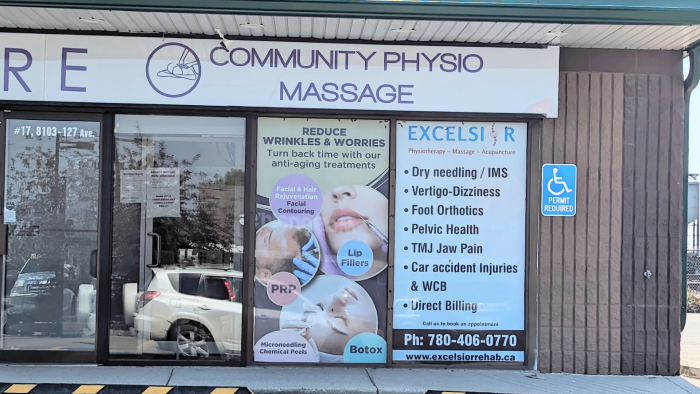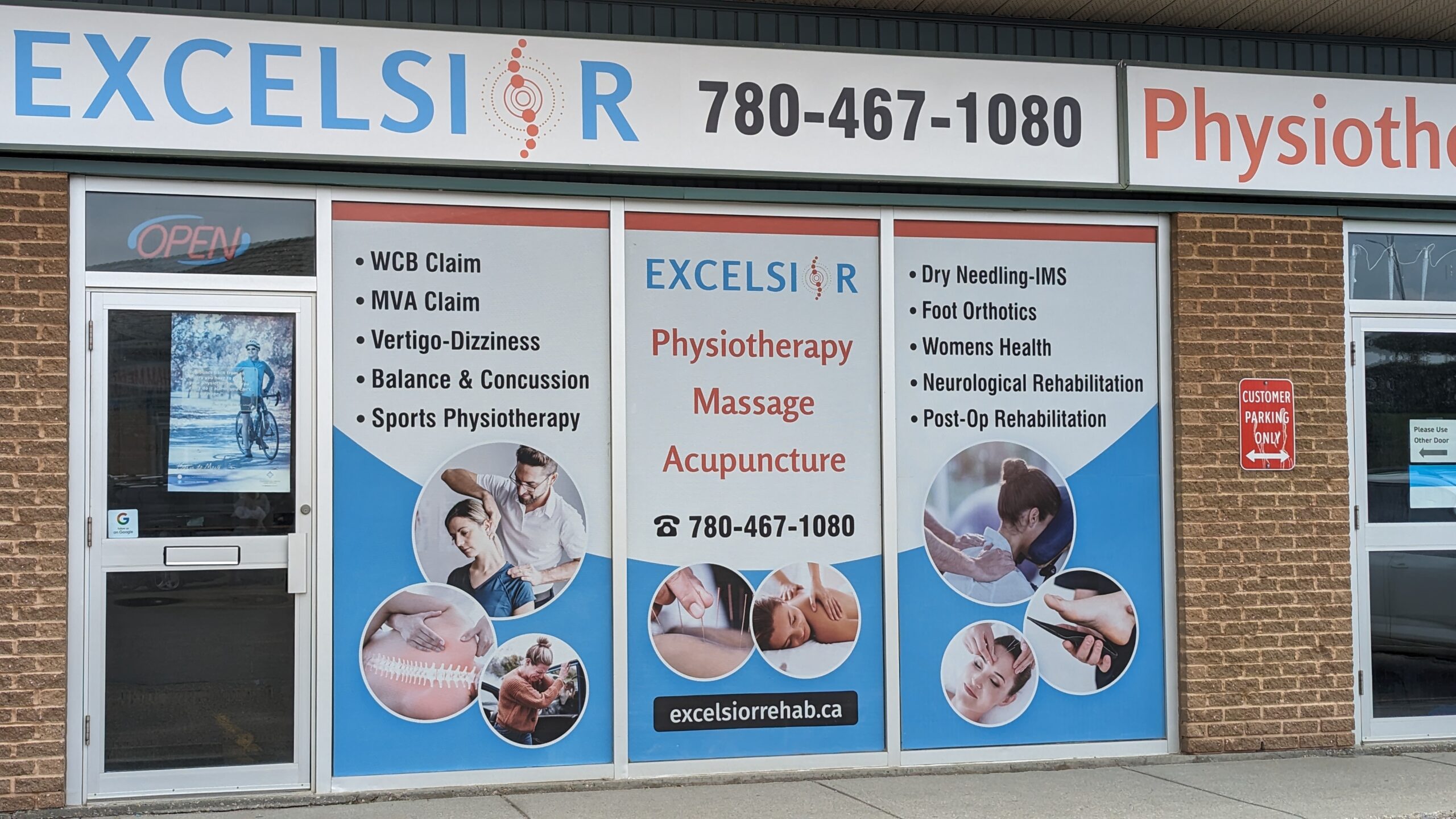RHEUMATOID ARTHRITIS
Home » Rheumatoid Arthritis
RHEUMATOID ARTHRITIS
Physiotherapy in Edmonton for Rheumatoid Arthritis
Welcoming all readers to Excelsior Physiotherapy’s informative guide about Rheumatoid Arthritis or RA.
Rheumatoid Arthritis is a long-term chronic medical condition, which is considered a type of arthritis that triggers an inflammatory response in your body. RA is an autoimmune condition where the body tissues get attacked by your immune system. The attack occurs mainly across the joints and other major parts of your body. In a few cases, RA doesn't get worse with years but gives out regular symptoms during its course. While for the rest, RA can become progressive and cause joint destruction. This is when your mobility is affected making routine tasks very difficult. The attack of RA can surface at any point in time among people of varied age groups from 30 to 50. The RA affecting kids is called juvenile Rheumatoid arthritis, which will not be discussed in our resource.
With this online guide, you will be able to understand:
- The way RA develops in an individual
- How RA is diagnosed by your health care professional?
- How to tackle RA?
- About Excelsior Physiotherapy’s approach to RA rehabilitation
ANATOMY
All About Rheumatoid Arthritis Development
Rheumatoid Arthritis develops in two ways, which are called the synovial membrane known as synovitis gets inflamed due to the attack of the immune system. The synovial membrane is. A fragile tissue lying around the joints and when blood flow is high, it gets inflamed, accumulates fluid and remains warm. The other way is caused by repetitive synovitis where the membranes and blood cells swell up due to the secretion of synovial fluid. It leads to permanent damage to your tendons, ligaments, cartilage and bones surrounding the joint. It occurs in the initial stage to three years of RA, which when progresses cause permanent joint damage.
RA will damage the joints on either side and cause inflammation in the tendons. It is also referred to as systemic disease as it causes pain, swelling, heat and redness across your whole body. It can also affect your eyes, lungs, heart, and blood vessels.
Studies reveal that around 85% of people dealing with RA have an antigen called RF or Rheumatoid factor. The ones who are RF-positive are at a higher risk of developing RA in their organs.
Causes of Rheumatoid Arthritis
- There aren't any specific reasons behind your body developing RA.
- Bacteria or viruses might be responsible for inducing RA.
- Bacteria leads to synovial membrane inflammation.
- Genes play a pivotal role in leading to the development of RA.
- A family history of RA can make you 16 times more prone to developing it.
SYMPTOMS of Rheumatoid Arthritis
- Severe pain in symmetrical joints like knees and elbows.
- In rare cases, they will have pain in one joint alone.
- Pain and swelling at the synovial membranes.
- Hot and swollen joints with on and off pain.
- Very stiff joints after waking up lasting about 2 hours.
- Hard knots or nodules are felt across several joints like elbow, toe joints, lower abdomen, and Achilles tendon ranging from pea size to golf ball size.
- Such nodules have no pain and may shrink in size or go away with frequent flare-ups of weakness and tiredness.
- Systemic inflammation is common.
- Eye inflammation or conjunctivitis is commonly found in RA patients, which may even cause eye dryness and Sjogren's syndrome.
- RA affecting the lungs may cause pleural inflammation resulting in coughing, breathing issues and pain caused by pleurisy.
- RA attacks the nervous system, which is why the cervical sound and cervical vertebrae become unstable and weak.
- It also affects your spine.
Which parts of your body does Rheumatoid Arthritis affect?
- Cervical spine: You might feel symptoms like stiffness and weakness when using your neck, and loss of range of motion. Inflamed ligaments, and issues related to the spinal cord and nervous system. Neck pain might be better, while the joints get damaged. However, nervous system damage might get better.
- Shoulders: RA causes loss of motion in the shoulders due to extreme pain, making it immovable. So, you will face issues like a frozen shoulder and limited range of motion.
- Hands and wrists: Usually RA affects the joints and wrists of your fingers, knuckles and hands leading to deformity and insula bending.
- Knees: Inflammation in the knee and formation of a lump known as Baker’s cyst at the back of the knee. If it bursts it might cause fluid leakage in your calf muscles.
- Feet and Ankle: Rheumatoid Arthritis can mess with your ankle joints and toes causing pain as well as deformities, thereby affecting mobility and range of motion.
- All these joints may experience occasional flare-ups, which can tire you down with extremely painful episodes and numbness.
DIAGNOSIS OF RHEUMATOID ARTHRITIS
- A complete assessment of the medical history of the patient before diagnosis.
- The physiotherapist at Excelsior Physiotherapy would like to know the area of pain initially, the joints affected, injuries (if any), and activities, which relieve or trigger the pain.
- Physical Examination by our physiotherapist to check for swelling, pain, inflammation, warmth, disfiguration, and abnormality in joints like cysts or nodules.
- Determining the range of motion deficit in each affected joint, crepitus assessment, or clicking noise when bone rubs over bone.
- Check the joints for signs of damage, loose joints, and signs of damage.
- If our physiotherapist at Excelsior Physiotherapy thinks that the cause of such symptoms is Rheumatoid Arthritis, then they might refer you to an expert medical professional for further clinical evaluation and tests.
Evaluation of Rheumatoid Arthritis by Doctor
- The doctor might suggest an array of tests that help determine RA, such as X-rays, blood tests, and tests to identify the presence of synovial membranes.
- He might check for SED or ESR rate or erythrocyte sedimentation rate to know the extent of damage performed by RA in your body.
- He might also suggest a C-reactive protein test to know the level of proteins and their effect on inflammation.
- A biopsy of rheumatoid nodules will also be performed.
TREATMENT FOR RHEUMATOID ARTHRITIS
It is important to take up treatment during the initial stages of RA as soon as the symptoms surface. The treatment will include physical rehabilitation and medication. This will help in preventing people from experiencing disability, extreme pain flare-ups, and staying at home. Your doctor might prescribe some of the medications discussed below:
- NSAIDs or Nonsteroidal anti-inflammatory drugs will help lower inflammation and pain.
- Corticosteroids taken as injection shots or orally will provide relief for a short period.
- Eye medications will be suggested for eye inflammation.
- Disease-modifying antirheumatic drugs or DMARDs will help in preventing RA damage to joints and tissues.
- Biologic response modifiers or BRMs, Gold salts, and medicines containing Cyclophosphamide, Cyclosporine, Penicillamine, Azathioprine, Methotrexate, and Sulfasalazine will be prescribed by your doctor to prevent the effects of RA.
- Abatacept as IV therapy, and injections containing Etanercept, Infliximab, and Adalimumab will be administered.
REHABILITATION FOR RHEUMATOID ARTHRITIS
Excelsior Physiotherapy offers rehabilitation treatment for Rheumatoid Arthritis to control flare-ups and joint issues, occurring as a result of illness.
Excelsior Physiotherapy offers physiotherapy treatment services in Edmonton.
- At Excelsior Physiotherapy, we help you understand the extremity of the disease, the significance of rehabilitation for enhancing joint mobility and protect its functions to avoid structural deformity. This will help you deal with flare-ups by preventing or managing them.
- Our physiotherapy treatment in Edmonton utilizes TENS or transcutaneous nerve stimulators, and cold and heat therapy to deal with painful sensations.
- We also suggest hydrotherapy to immerse the affected joints or the whole body in warm water to bring down the pain with gentle movements.
- Our massage treatments in Edmonton by Excelsior Physiotherapy will help lower the frequency of flare-ups.
- Our physiotherapists at Excelsior Physiotherapy will suggest a better sleeping position to prevent the affected joints from straining.
- We suggest muscle stretches and strengthening workouts to prevent motion range deterioration, as this hands-on technique helps your joints to move without pain. Our customized stretching program will meet your specific mobility and pain needs, as you can do it at home too.
- If using braces or orthotics, we will refer you to the concerned specialist to assist you further.
- Out treatment also includes gentle aerobic exercises like cycling, walking, and swimming to enhance the overall well-being of the patients.
Rheumatoid Arthritis need not be a terrific experience for you when you seek the help of your healthcare professionals like doctors and our physiotherapists, as they will guide you through effective treatments to live a normal life.






